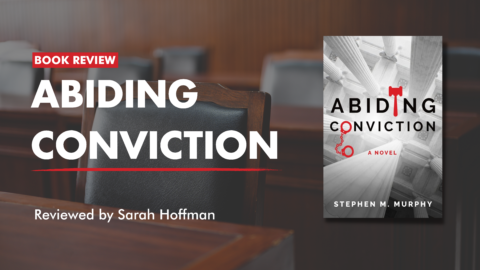The shadow of stress inevitably hovers over work in any profession. That is especially true in the practice of law, an endeavor in which lawyers must solve challenging and high-stakes problems, often within extremely tight deadlines. So, what does it mean to be resilient in a profession like ours?
In short, resilience means the ability to adapt to change, overcome challenges, and bounce back from upsets. I find it helpful to think about resilience like a fuel tank. Resilience interventions allow us to fill up our personal tanks with the energy and mental fuel we need to make it through stressful times without the gauge hitting “E.” A full resilience tank means more fuel to tackle challenges. Resilience also allows us to more quickly refill our tanks and get back to an optimal state of functioning so we are not finding ourselves depleted or burned out. We cannot remove the stress from lawyers’ jobs, but we can equip you to better manage and handle challenges.
Unfortunately, and perhaps surprisingly, lawyers tend to score quite low on resilience. In fact, studies indicate that nine out of ten lawyers score below the 50th percentile. We do not know exactly why this is, but the conundrum persists: While lawyers are not inherently resilient, the nature of their job demands that they be.
The good news is that resilience is something you can develop and practice at any point in life.
In this article, I will share some of my favorite science-based tips and tricks for improving resilience. You can think of these as a set of fuel sources for your own resilience tank. These small, simple habits may produce big payoffs.

Know Your Strengths
Identify and hone your unique talents. Character strengths are the personality traits that describe what is best in people. These include qualities such as bravery, fairness, leadership, and creativity. The key is to figure out ways to leverage them to be more engaged and effective in all areas of life.
Visit www.viacharacter.org to take a free, empirically validated, character strengths self-assessment. This report may help you be aware of your unique talents so you can apply them to your everyday life in order to be more engaged and resilient.
Self-Regulate With Mindfulness
We are all familiar with stress. A negative event occurs and it is common for us to react with matching negativity. Mindfulness helps us create space between events and our reactions so that we can self-regulate. Next time you feel overtaken by the stress response, try the “4-7-8” technique. Breathe in through your nose for four seconds, hold your breath for seven seconds, and exhale through your mouth for eight seconds.
Adopt the Power of Yet
A growth mindset describes the notion that we possess the ability to learn, grow, and become smarter. It is the opposite of a fixed mindset, in which we believe we can learn but cannot change our basic level of intelligence. Studies of students (including law students) show a close correlation between academic achievement and the belief that one could achieve and acquire knowledge.
This shows up in our brains, too. Our brains look different in terms of activity levels when we think, “I don’t know yet” as opposed to, “I don’t know.” When we approach a challenge with a growth mindset, our brains literally become more active, allowing us to learn and achieve more. That is what we call “the power of yet.” Need a nudge? Write “yet” on a sticky note and paste it to your computer monitor as a subtle reminder.
Switch to Videoconferences
We all make choices every day—often, multiple times a day—on how we connect with our colleagues and clients in a global, virtual business context. While there are times when a phone call or email is the most logical means of communication, many (if not most) situations also lend themselves to a videoconference.
Videoconferences and in-person meetings when possible allow for an added visual component that enables high-quality connections. Not only does this visual aspect allow us to read verbal cues, which helps us get work done more efficiently and accurately, it reminds us that a fellow human being is on the other end of the line. This humanizing consequence allows us to connect with more empathy and to get work done more productively.
Audit Your Social Media
In this technology age, social media has become a leading platform for interacting with our communities. There are many ways to have a community, such as families, friends, book clubs, golf clubs, religious organizations, or even sports teams. Whether it be Facebook, Instagram, LinkedIn, or Twitter, we can connect to our communities virtually, which means we have to consider how that virtual connection is affecting this dimension of resilience.
Take a few minutes to do an audit of your social media content. Think about how, what, and whom you are choosing to follow is affecting your community well-being. For example, maybe your Facebook newsfeed is cluttered with people from high school who are not part of your current community. In those cases, a quick “unfollow” could reduce the noise and leave more room for the people with whom you do actually want to interact. Alternatively, perhaps you could add some accounts or people in order to feel better in touch with communities that are more relevant. Find a way to use social media for good and connect with communities that are important to you.
Drink More Water
Dehydration can contribute to negative physical and emotional outcomes such as mental fog, irritability, insomnia, fatigue, and even hunger. Sometimes, when we think we feel hungry it is just the body telling us we need more water. When it comes to resilience, we need to be setting our bodies up for success to function properly in the face of stress and challenge.
Try to drink one-third of your body weight in ounces each day at a minimum. You’ll need to add an extra eight ounces for things you do throughout the day that dehydrate you, such as exercising, drinking a cup of coffee, or having a serving of alcohol. Keep a water bottle on your desk or in your bag so it’s easier to sip throughout the day.
Be a Flexible Optimist
Let’s start by recognizing the fact that for someone to be an effective lawyer, a pessimistic mindset is helpful, if not necessary. Being skeptical, judgmental, questioning, and argumentative allows you to be a better advocate for your clients. It’s not surprising, therefore, that lawyers tend to be an incredibly skeptical population.
However, pessimism is not always the most effective approach in certain tasks, such as mentoring junior associates or leading a committee. In those cases, a pessimistic mindset may actually be counterproductive. Therefore, instead of recommending round-the-clock optimism, I instead suggest we create awareness for when a pessimistic mindset is beneficial and when it creates obstacles. By building up our mindset muscles, we can better use pessimism for good and turn it off when it is no longer useful.
We want to get used to asking ourselves, “When does skepticism help me?” and, on the flip side, “When would optimism be better.” By creating this awareness, we can strengthen our ability to override our innate pessimistic approaches in situations where might be counter-productive. It is this ability to flip back and forth that we call “flexible optimism.”
I hope these ideas will serve as a reminder that the little stuff matters. Challenge yourself to adopt one or two of these techniques and begin tomorrow.
About the Author
Krista Larson serves as Morgan Lewis’s director of employee well-being. In this global position, she works to design and implement a custom well-being curriculum as part of the firm’s employee engagement efforts.


